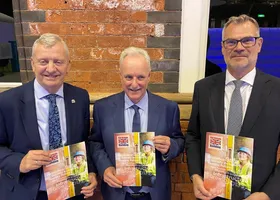
Conservative prime minister David Cameron and his Liberal Democrat deputy Nick Clegg marked the halfway point in their government by setting out their plans for the remaining term.
Among a long list of commitment’s the prime minister said: “We will build more houses and make the dream of home ownership a reality for more people.”
But the housing industry once again played second fiddle to commitments on transport infrastructure and more particularly promises to speed up road building and widening programmes by the next Budget.
But the mid-term review, entitled ‘The Coalition: together in the national interest’, underlined the Government plans for housing in the coming years.
These include:
- creating a debt guarantee scheme for up to £10 billion to support increased building of both new affordable homes and homes for private rent;
- supporting first-time buyers through an extension of the FirstBuy equity loan scheme, as well as continuing to champion the NewBuy scheme to increase the availability of mortgages on new build property;
- removing restrictions on developers, so that those who can prove that a council’s affordable housing requirements make a project unviable will see such requirements reduced or removed; and
- bringing more empty homes back into use, supporting the release of public sector land and reducing planning delays in order to accelerate major housing projects.




















































